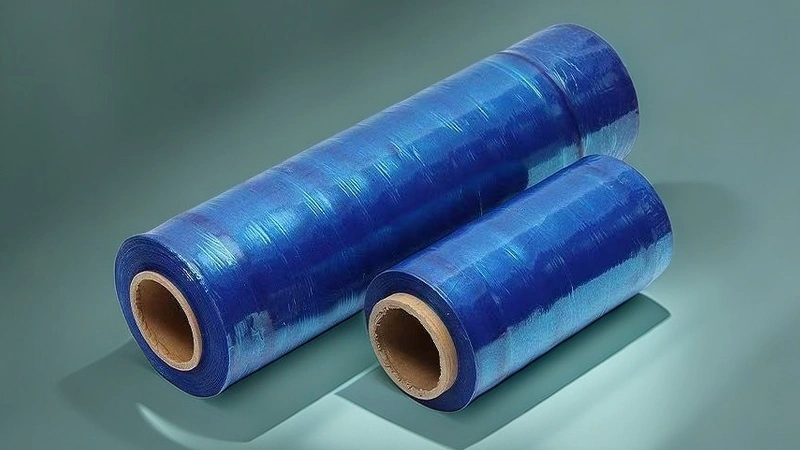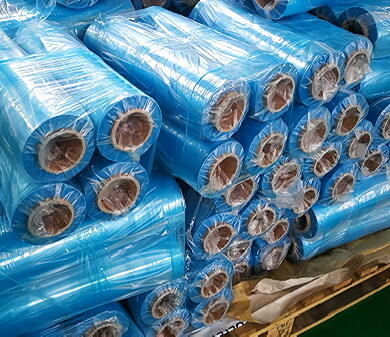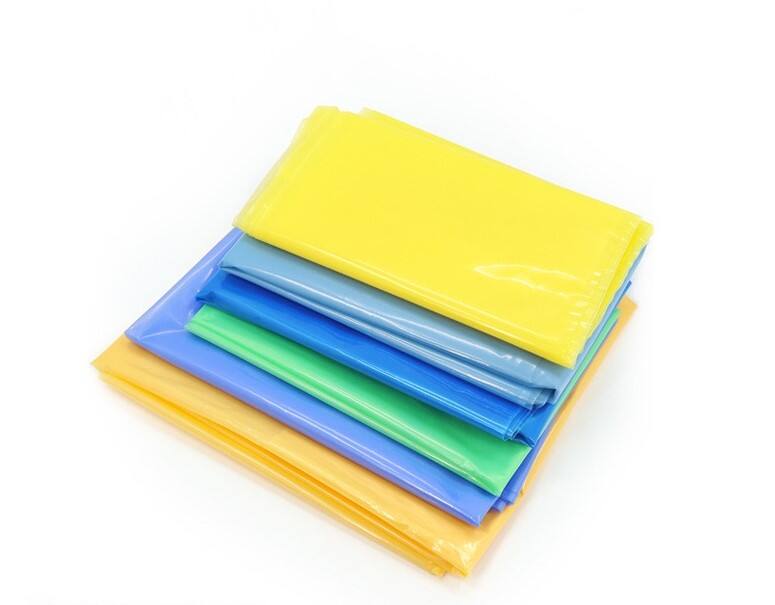Vapor corrosion inhibitors (VCI) films, rust-proof paper, and rust-proof bags are essential tools in the fight against metal corrosion in various industrial sectors. These materials are designed to provide effective protection for metal products, mac...
Share
Vapor corrosion inhibitors (VCI) films, rust-proof paper, and rust-proof bags are essential tools in the fight against metal corrosion in various industrial sectors. These materials are designed to provide effective protection for metal Products, machinery, and components during storage, transportation, and even in harsh environmental conditions. Here, we will explore their applications and practical cases in the global industrial landscape.

VCI films are a type of packaging material embedded with corrosion inhibitors that are released into the air within a sealed environment. These inhibitors form a protective layer on the metal surfaces, preventing corrosion and oxidation, even in high-humidity conditions. VCI films are widely used in a variety of industries, including automotive, electronics, manufacturing, and construction.
Applications:
Automotive Industry: VCI films are used to protect engine parts, chassis components, and other metal components during transport and storage. They help prevent rust, which can degrade the quality and functionality of automotive parts.
Electronics Manufacturing: Sensitive electronic components, such as circuit boards and connectors, are prone to corrosion due to humidity and pollutants. VCI films are used to protect these components from corrosion, ensuring their longevity and reliability.
Machinery and Equipment: Large industrial machines, especially those used in manufacturing processes, are often vulnerable to rusting. VCI films are used to wrap and protect machinery during shipping and storage.
Real-World Case: A leading automotive manufacturer in Europe implemented VCI film packaging to protect engine parts during transportation. Prior to the use of VCI films, parts often arrived at the assembly plant with signs of rust, which delayed production and increased costs. After switching to VCI film, they reported a significant reduction in rust-related damage, improving supply chain efficiency and reducing production delays.

Rust-proof paper is a specialized paper treated with a corrosion inhibitor that protects metal parts and components from moisture and air, which are primary causes of rust formation. It is commonly used in the protection of small and medium-sized parts in various industries, such as automotive, aerospace, and consumer goods.
Applications:
Aerospace Industry: Rust-proof paper is used to wrap delicate components like turbines, gearboxes, and engine parts, ensuring that no corrosion occurs during long-term storage or transport.
Consumer Goods: Manufacturers of metal household goods, such as appliances and tools, use rust-proof paper to package their products, ensuring they reach the consumer in pristine condition without corrosion.
Metal Fabrication: During the production of fabricated metal components, rust-proof paper is often used as a protective layer for parts awaiting further processing or shipment.
Real-World Case: An aerospace company in North America used rust-proof paper to protect turbine blades during transportation from manufacturing plants to maintenance facilities. The rust-proof paper ensured that the blades arrived without any signs of corrosion, even after several weeks of storage in humid environments, helping to maintain the quality and performance of the equipment.

Rust-proof bags are another highly effective method for preventing corrosion, especially when dealing with large, bulky, or irregularly shaped items. These bags, often made of polyethylene or similar materials, are impregnated with corrosion inhibitors that protect metal surfaces from moisture, dirt, and other environmental factors.
Applications:
Industrial Equipment: Large industrial machines, engines, and other heavy equipment are often protected with rust-proof bags during long shipping periods or when stored in environments with high humidity.
Marine and Offshore: Due to the exposure to saltwater and humidity, rust-proof bags are commonly used in the shipping of metal parts to offshore platforms, ensuring that parts remain rust-free until they reach their destination.
Construction: Construction equipment and metal supplies are often stored outdoors, where they can be exposed to the elements. Rust-proof bags offer a practical solution for protecting materials such as rebar, pipes, and structural steel components.
Real-World Case: A global construction firm used rust-proof bags to protect steel beams and structural components while transporting them to a high-rise building construction site in a coastal city. The bags shielded the metal from the corrosive effects of salty air and moisture, ensuring that the materials arrived at the site in perfect condition and ready for use.
Conclusion
VCI films, rust-proof paper, and rust-proof bags are indispe